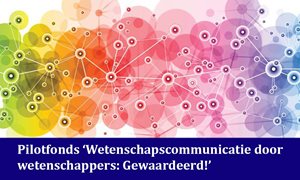 Losing the ability to walk normally is a widespread problem for people with Parkinson's disease. However, patients themselves frequently discover innovative compensation strategies to circumvent their walking problems. Interestingly, these compensation strategies vary enormously: from making skating movements, to using a scooter or looking at the stripes of a pedestrian crossing. For the first time, researchers at Radboudumc have made an overview of all known compensation strategies. This overview, published in JAMA Neurology on March 25, aids therapists to better help patients with their gait problems.
Losing the ability to walk normally is a widespread problem for people with Parkinson's disease. However, patients themselves frequently discover innovative compensation strategies to circumvent their walking problems. Interestingly, these compensation strategies vary enormously: from making skating movements, to using a scooter or looking at the stripes of a pedestrian crossing. For the first time, researchers at Radboudumc have made an overview of all known compensation strategies. This overview, published in JAMA Neurology on March 25, aids therapists to better help patients with their gait problems.
External cues
Freezing of gait is difficult to treat with medication. What often helps is to consciously shift attention to walking, for example by introducing a clear goal. For example, it can help to look at objects on the ground in a targeted manner and to step over them, such as a pedestrian crossing. But walking can apparently also improve in many other ways, for example by bouncing with a ball, by walking sideways, or by imitating someone else's walking pattern. People with Parkinson's are also very skilled on the bike or on the scooter. Several of such compensation strategies developed by Parkinson patients have already been described, but so far only in an anecdotal fashion (case reports).Hundreds of videos
Jorik Nonnekes and Bas Bloem, together with an international team of researchers, asked people with Parkinson's for four years to film their favorite (and often self-developed) compensation strategies. They received hundreds of examples and filtered out 59 unique compensation strategies. These could be subdivided into seven main categories, which appear to have a different underlying mechanism of action.A strategy for every patient
That such an overview was not yet available is striking, says Jorik Nonnekes: "Compensation strategies are very important in the treatment of walking problems in people with Parkinson's disease. People with Parkinson's disease currently don't always get a comprehensive overview of all available strategies; our overview is a first step; so that people worldwide can benefit from improved mobility and lower risk of falling. It is important that all different compensation strategies are properly explained, because not every strategy works equally well for every individual patient. For each patient we need to look for the most suitable compensation strategy. An important follow-up question for us is how we can predict which strategy works best for which patient. I am now going to investigate this using a recently awarded VENI grant."Publication
Compensation Strategies for Gait Impairments in Parkinson Disease: A Review.
Nonnekes J, Ružicka E, Nieuwboer A, Hallett M, Fasano A, Bloem BR.
JAMA Neurol. 2019 Mar 25.
Related news items

Grants for science communication at Radboudumc
22 April 2021 Scientists at the Radboudumc have received two KNAW grants, each worth 10,000 euros, for science communication. With the new fund, KNAW underlines importance of making science accessible. go to page
UMD Catalist grant for Mohammad Alsady and Federica Conte
24 June 2020They received this award to explore the potential of hiPS-derived skeletal muscle cells as model to investigate muscular pathophysiologic mechanisms in phosphoglucomutase I deficiency.
go to page
Bas Bloem elected as new member of the KNAW
30 April 2020 Bas Bloem is an expert in Parkinson's disease. He is also a healthcare innovator, focused on the integration of scientific research and its clinical applications. We congratulate Bas with this election. go to page
Five ZonMw ‘Off Road’ grants for Radboudumc researchers
17 February 2020 Benoit Besson, Annemarie Boleij, Jonne Doorduin, Jorik Nonnekes and Sara Roig Merino have each received an ZonMw ‘Off Road’ grant of €100,000. The grants are intended for biomedical health researchers who dare to go off the beaten track in their search for new insights and unexpected breakthroughs. go to page
Towards molecular therapies for Myotonic Dystrophy
1 October 2019ReCognitION, a new 1.3 M€ European project under the leadership of Peter-Bram ‘t Hoen, Baziel van Engelen and Jeffrey Glennon, was kicked-off in Gent.
go to page
